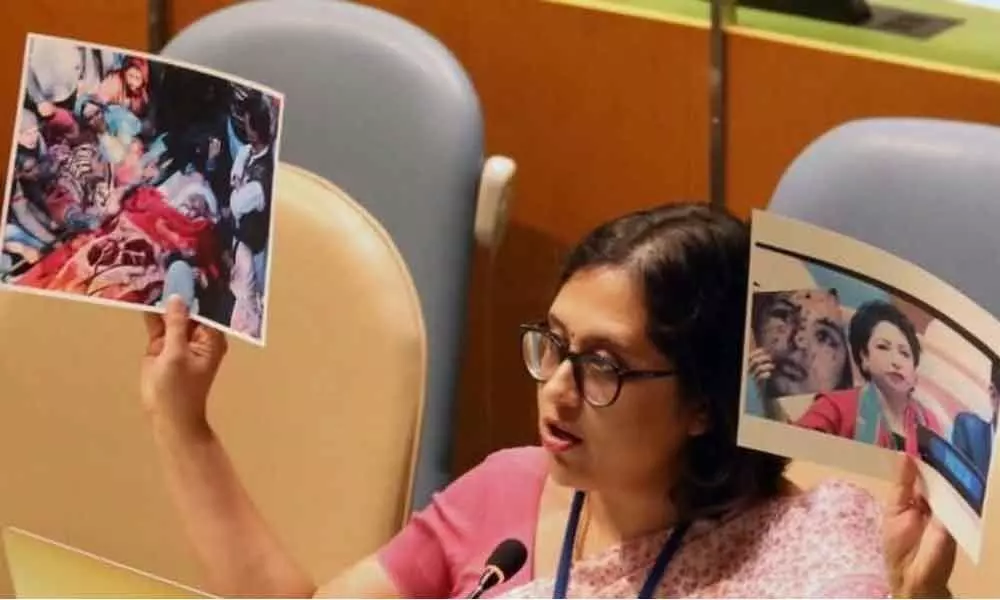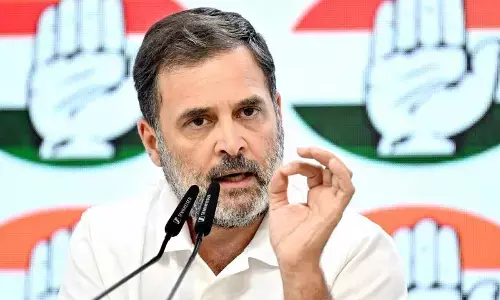Increase cooperation between UN, FATF: India

India has called for increased cooperation between the UN and organisations such as the Financial Action Task Force to deal with the nexus of terrorist groups and transnational organised criminal networks that helps raise funds for terror financing and recruiting and other illicit activities across borders.
United Nations : India has called for increased cooperation between the UN and organisations such as the Financial Action Task Force to deal with the nexus of terrorist groups and transnational organised criminal networks that helps raise funds for terror financing and recruiting and other illicit activities across borders.
Speaking at a General Assembly Third Committee that deals with social, humanitarian affairs and human rights issues, First Secretary in India's Permanent Mission to the UN Paulomi Tripathi said transnational organised crimes continue to undermine efforts to achieve the sustainable development goals, and threaten international peace and security.
"Terrorist organisations are increasingly drawing sustenance by using transnational organised criminal networks for illicit activities to raise funds.
Crime syndicates are in cahoots with terrorists, providing them services such as counterfeiting, money laundering, arms dealing, drug trafficking and smuggling terrorists across borders," Tripathi said here on Thursday.
She said the activities of terror groups such as ISIL, Al Shabab and Boko Haram using extortion, human trafficking, extraction of natural resources, trade in cultural artefacts and illicit taxation in areas under their control, manifest the blurring of lines between crime and terror.
"There is also increasing evidence that narcotics are being used not just for terror financing but for luring youth to be recruited by the terrorists.
Revenue generated by illicit activities of terrorists and criminal groups are moved across borders and exchanged through open networks," she said at the committee's session on 'Crime Prevention & Criminal Justice, Countering the use of information and communications technologies for criminal purposes & International drug control'.
Tripathi underscored that such a situation calls for far more coherent and resolute response and "the UN needs to increase cooperation with other bodies such as Financial Action Task Force (FATF), which is playing a significant role in setting global standards for preventing and combating money laundering and terrorist financing."
"Its impact is not limited to rule of law and governance. Rather, its deleterious effect on domestic resource mobilisation through money laundering, corruption and other economic offences, impede development. Symbiotic relationship between transnational organised crimes and terrorism adds complexity to this issue," she said.
The Paris-based FATF is an intergovernmental organisation to develop policies to combat money laundering and terrorism financing.
Tripathi further said that the structure of organised crime groups is changing towards more loosely associated networks that are difficult to interdict.
"They are using an array of new and emerging technologies, including drones, virtual currencies, encrypted communications and artificial intelligence. This requires increased sophistication and timely sharing of operational information among law enforcement agencies across jurisdictions and borders," she said.
Tripathi said that there is need for broader international cooperation based on criminal justice and health responses, given that today some 35 million people suffer from drug use disorders and 11 million inject drugs, of whom 1.4 million live with HIV and 5.6 million live with hepatitis C.
"A balanced approach is needed to address misuse of prescription drugs, while guaranteeing availability and access to such medicines," she said adding that India has recently initiated a National Action Plan for Drug Demand Reduction that focuses on preventive education, awareness generation, capacity building, counselling, treatment and rehabilitation to ensure drug demand reduction by 2023.
With traffickers increasingly using internet and social media, Tripathi said there is need for stronger partnerships with civil society and private sector and more resources for law enforcement to address this phenomenon.
On the issue of cybercrime, she said it differs significantly from traditional crimes in terms of its nature, scope, means, evidence and activities and so information exchange in real time or near-real time is essential for evidence collection to bring cybercriminals to justice.
"There is also a need for greater multilateral cooperation in the field of cybercrime especially for facilitating swift information exchange essential for preventing cybercrime and for furnishing digital evidence in cybercrime investigations," she said.










